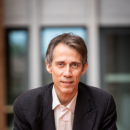About
Infrastructure development around the world poses ever-changing challenges, including financing, sharing access to certain infrastructure and optimizing the often complex and networked underlying structure. TSE aims to undertake research that helps organizations in both the public and the private sector to better understand these issues and provide operational responses. In 2021, TSE expanded its footprint in this area by creating a center combining TSE’s own expertise with its private and public partners’ financial support and knowledge.
Main activities
Scientific production
- Development of new knowledge resulting in academic publications
- Organization of scientific conferences and seminars
Dissemination of economic knowledge
- Production of outreach materials and the organization of events meant to inform practitioners, policy makers or a wider audience
- Participation of researchers in the public debate in France and internationally
Main lines of research
- Finance and decision theory under uncertainty
- Network and spatial economics
- Procurement and regulation
Research focuses
Construction and housing economics
- Objective: This research program aims to offer a better understanding of housing occupancy choices and the consumption of housing services, the political economy of social housing construction, as well as macroeconomic analysis of construction.
- Program leader: Martial Dupaigne works on the production of new dwellings and the macroeconomic consequences of the housing market.
Developing Countries
- Objective: We provide academic insights into the development of infrastructure and networks in the specific context of developing countries. These countries suffer from major gaps in access to infrastructure, which raises complex investment and financing issues.
- Program leader: Emmanuelle Auriol works at the intersection of regulation, organizational theory, industrial organization, and development economics.
Postal and Telecom
- Objective: Researchers working on this initiative provide academic insights into economic models of these sectors. We observe their constant need to adapt to the competitive environment, given the rapid advances in digital technologies and the constraints imposed by regulators.
- Program leader: Helmuth Cremer works on public economics, industrial organization, family and population economics.
Responsible finance and long-term investments
- Objective: Research in this area is focused on evaluating long-term assets and investments as well as measuring the impact of ESG (environmental, social and governance) factors on company value.
- Program leader: Catherine Casamatta works on corporate finance theory, venture capital, investment fund management, managerial compensation.
Transport
- Objective: We aim to address a variety of questions of interest to economists in the transport sector, including regulatory policies, optimal resource allocations, and urban development.
- Program leader: Marc Ivaldi works on industrial organization, microeconometrics, competition and regulation policy. He is a specialist in the area of transport, telecommunications, energy, information technology, insurance.
Utilities
- Objective: Our program seeks to understand the determinants of efficient long-term investments in utilities (water, electricity and gas), confronted with infrastructure aging, decarbonization of economies, extreme climate fluctuations, rapid changes in demand for goods and services, and digitalization of processes.
- Program leader: Arnaud Reynaud works on the economics of natural resources. He is a specialist of dynamic models for water allocation across heterogeneous agents and has conducted research on the regulation of the water industry. He has also realized some global assessments of the macro-economic impact of water policies.



